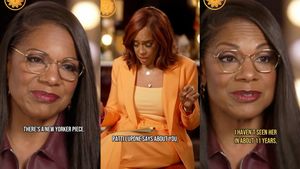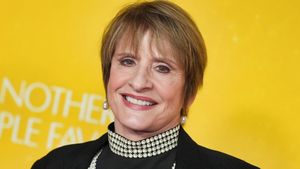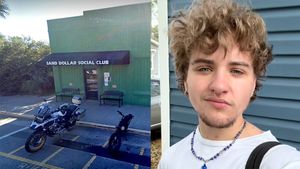Rudolf Brazda, a
95-year-old German citizen and the last known gay
survivor of the Holocaust, has definitively broken his
silence on his experience at the Buchenwald camp. In a
new interview in the French gay magazine
Tetu, Brazda speaks in detail for the
first time since he made provisional remarks at the June
inauguration of a Berlin memorial to gay victims of the
Nazis.
"The way
Nazis treated the 'pink triangles' is
unspeakable," Brazda told Tetu,
referring to the emblem gays were forced to wear to
signify their homosexuality. "They had absolutely no
mercy."
The "pink
triangles" not only had to suffer the ill treatment
of the Nazis but also had to endure the homophobia of
other prisoners. In the documentary Paragraph
175, which takes its name from the German criminal
code provision regarding homosexuality, Pierre Seel,
the only Frenchman to have publicly testified about his
imprisonment for being gay, explains that "the weakest
people in the camps were the homosexuals; they were at
the very bottom." Seel died in 2005.
Before Brazda
first spoke in June, the Lesbian and Gay Federation in
Germany (LSVD) did extensive research to authenticate and
certify his testimony. He may not be the only survivor
still alive, though, according to LVSD spokesman,
Alexander Zinn. "No one ever invested the time and
the money to try and find all those who
survived," Zinn told Tetu. It's
estimated that 75,000 gays were deported by the Nazis.
While other
survivors of the camps were celebrated at the end of the
war, gay survivors usually had to remain silent about
their experiences because homosexuality was still
illegal in many European countries (such as France,
where it was not decriminalized until 1982). "Before,
no one cared about this tragedy," Brazda told
Tetu when asked why he didn't speak out
earlier.
After he was
freed from Buchenwald, Brazda moved to France and built a
house, where he lived for 35 years with his partner, who
died in 2002. (Thibault Chareton, Advocate.com)










































































